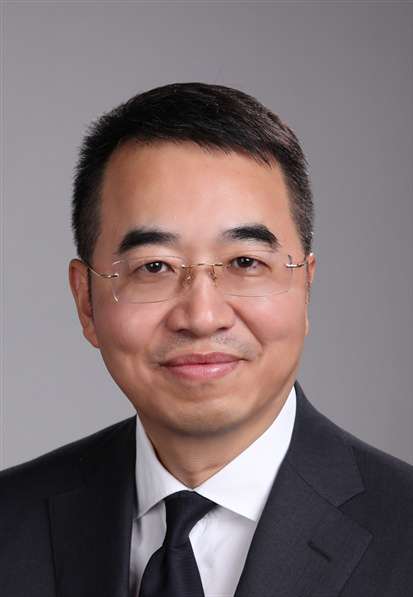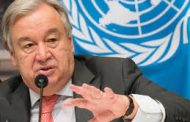Ma Xinmin, Chinese Ambassador to Sudan
As the coronavirus
pandemic that knows no borders or race continues to surge across the globe, it
has been a common challenge to all countries. Committed to the vision of
building a community of a shared future for mankind and living up to its
responsibility as a big power, China has made tremendous efforts and sacrifice
in this monumental fight against COVID-19, gaining the respect and acclaim from
the international community.As a spearhead of the global battle against COVID-19
pandemic, China provides a “window of opportunity” to contain the global spread
of the novel coronavirus. Under the
leadership of Chinese President Xi Jinping, China has adopted, at the earliest
time possible, the most comprehensive, stringent and thorough prevention and
control measures to prevent the coronavirus from spreading within the affected
city or beyond. With quick epidemic response and united efforts to stem the
spread of the virus to overseas, China has built the first line of defense for
the global fight and bought precious time for the international community to
enhance preparedness. In addition to the traditional “quarantine strategy”,
including putting the epicenter under lockdown with communities and villages
cut off from the outside world and roads closed off, suspending work and
production, shutting down schools and banning gatherings, China harnessed
emerging technologies such as big data, artificial intelligence, internet of
things and 5G technology to modernize the conventional control measures.
Director-General of the World Health Organization (WHO) Dr. Tedros has
reiterated that the response measures taken by the Chinese government cost it
dear but work on slowing down the spread of the virus to other countries in the
world, and called on the global community to “make best use of the valuable
time bought by China to enhance preparedness”.
As a pioneer of the global fight against COVID-19, China contributes its
wisdom and proposals to the epidemic response of the international community. Although China was the very first country hit by the COVID-19 outbreak in
the world, it has contributed without reservation its wisdom and proposals and
is pleased to see other countries benefit from its useful experience in
coronavirus disease prevention and treatment. Since the COVID-19 outbreak,
China has been stepping up efforts at tackling key scientific and technological
problems in respect of the origin of the new virus, effective therapeutic
drugs, vaccines and virus testing. China sequenced coronavirus COVID-19’s
genome at the earliest time and formed in a short time a testing technical
system that combines nucleic acid testing and antibody testing. It screened
swiftly a group of effective drug therapy and worked out treatment plans
effective for patients at different stages of coronavirus infections. Leading
the world in vaccine research and development, China has started clinical
trials of the COVID-19 vaccine. All of these efforts have contributed to the
technical breakthroughs for global joint response. A COVID-19 vaccine developed
by Chinese scientists entered human trials in China on March 16, 2020 upon
approval and will surely become one of the most powerful technological weapons
to eliminate the pandemic. Furthermore, acting with a sense of openness,
transparency and responsibility, China briefed, from the very beginning, WHO
and other countries involved on real-time epidemic information. It has been
sharing its good experience and practices with other countries by releasing
continuously updated COVID-19 diagnosis and treatment plans and prevention and
control plans that are translated into multiple languages, setting up its
online COVID-19 knowledge center and holding over 70 video conferences with
experts from more than 150 countries and international organizations including
Sudan. Dr. Bruce Aylward, team lead for the WHO-China joint mission on coronavirus
said that China’s counterattack can be replicated and other countries don’t
have to start from ground zero.
As a trailblazer in the
community of countries to battle the virus, China demonstrates its leadership
for the global epidemic response. Upholding the vision of building a community of a
shared future for mankind and the banner of multilateralism, China has been
calling for a collective response for control and treatment at the
international level. Chinese President Xi Jinping coordinated through the phone
call diplomacy the response policies with the leaders of over 20 countries and
the heads of multiple international organizations. At the Extraordinary G20
Leaders’ Summit on COVID-19, he called on the community of nations to act
swiftly and foster greater synergy, which is an embodiment of the Chinese
leader’s commitment to cooperation and concern for the common good. As
responsible major country, China has been extending a helping hand to regions
hardest hit by COVID-19 pandemic in the world to help resolve their urgent
needs. So far, the Chinese government has offered aid supplies to 127 countries
and four international organizations in support of their fight against novel
coronavirus. And local Chinese governments, enterprises and non-governmental
organizations have donated medical supplies to more than 100 nations. What’s
more, the Chinese government has dispatched medical expert groups that
travelled day and night to 11 seriously-hit countries, including Iran, Iraq,
Italy and Serbia, offering multiple rounds of emergency assistance to the
global fight against the pandemic. In a special video message, President of the
European Commission Ursula von der Leyen expressed her appreciation for China’s
valuable support to the Europe when the bloc was at the epicenter of the global
outbreak of COVID-19.
As a model for other countries to follow in their
fight against COVID-19, China shores up the world’s confidence to secure a
victory over the global anti-virus battle. Faced with the epidemic
outbreak, China managed to control the epidemic within a short time through
unprecedented control measures, enhancing confidence and setting a good example
for the global epidemic response. On April 8, 2020, Wuhan, the epicenter of the
coronavirus outbreak in China, emerged from lockdown after 76 days, signaling a
hard-won victory in the phase one domestic battle centered in the city of
Wuhan. As Dr. Michael Ryan, Executive Director of the WHO Health Emergency
Programme, remarked that China’s prominent progress in battling the coronavirus
provides hope for the rest of the world that the virus could be contained and
the epidemic situation could be turned around. At the same time, China has been
coordinating epidemic response and economic and social development, and now
takes the lead in achieving nationwide resumption of work and production, which
provides a much-needed shot in the arm for global economy likely in the
recession and adds impetus to stabilizing the global industry chain and supply
chain. Almost all of Fortune 500 companies with investment in China have
restored their production. China-Europe Railway Express freight trains to the
partner countries have been resumed to facilitate the cross-border flow of
goods and services. Managing Director of the International Monetary Fund (IMF)
Georgieva has voiced optimism about prospects about China’s economy, stating
that she expects the Chinese economy to recover quickly. This sends a clear
message of reconfirmation to global economic stability. China, a powerful
engine of the world’s economic growth, will continue to forge ahead with
contributing to global economic growth, stabilizing the global industry chain
and leading in the Belt and Road development.
As an old Chinese saying goes, a man of virtue will not be isolated. In
this formidable global battle against the pandemic, China has showcased through
concrete actions its leadership, leverage and credibility as a responsible
powerhouse, wining high acclaim from many countries. Confronted with the global
public health crisis, all countries are stakeholders with their interests and
security intertwined. The only way to defeat the virus is through cooperation.
And the international community must work together to seek common development
and achieve economic rebound.








